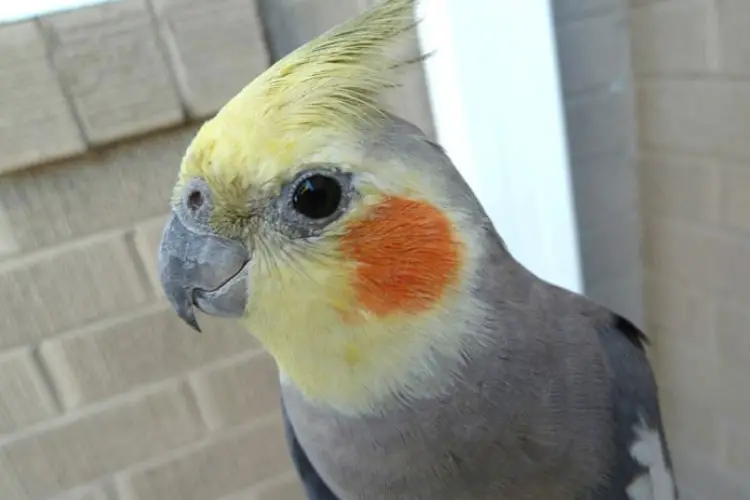Among the most heartbreaking moments for a cockatiel’s owners is when their feathered friend suddenly dies. This scenario leaves them depressed and with many questions as they try to determine the possible cause. For the lucky few who will have another chance to care for another bird, it’s crucial to learn the possible reasons.
So, why did my cockatiel suddenly die? A common cause of a bird’s death is usually toxins. These toxins can either be ingested or in the air that the bird breathes. However, poor diet, fatal injuries, and dehydration are also possible causes of a cockatiel’s sudden death.
Since there are many possible reasons for a cockatiel’s sudden death, you might have missed some symptoms and precautions. Read on to learn the various symptoms of some fatal causes and how to limit their possibilities.
Why My Cockatiel Died Suddenly? What Could be the Reason?
The sudden death of your beloved pet deprives you of anticipatory grief, leaving you shocked and confused. However, knowing the possible causes can help you cope with guilt and help you avoid similar future events. The following are the possible causes of a cockatiel’s sudden death.
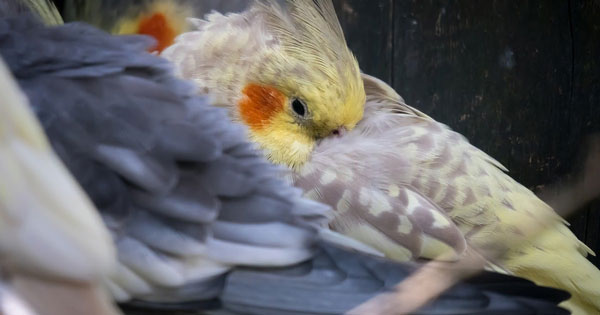
1. Toxins
Toxins are naturally occurring poisons that can affect both humans and animals. Pet birds like cockatiels can be exposed to these toxins either by ingesting or inhaling them. Possible toxins include Teflon (PTFE) found in non-stick cookware and other heating elements that birds inhale and die. Some plant toxins include persin, found in avocado plants; though not every type of avocado has it, most do.
2. Diseases
Some diseases can cause sudden death, while some are fatal if they’re untreated for some time. A genetic disorder, like a renal disease that causes organ failure, can cause a cockatiel’s sudden death. Avian tuberculosis can also cause sudden death if the owner fails to notice the symptoms.
3. Poor Diet
Like other pets, cockatiels require a balanced diet. A poor diet can cause health complications and death. It won’t cause death overnight. But if you’re careless about your bird’s diet, it’s possible that its health is deteriorating, and you’ve not realized it until you see it dying. Some commercial foods are high in glucose which grows the bird’s body rapidly, causing health complications and sudden death.
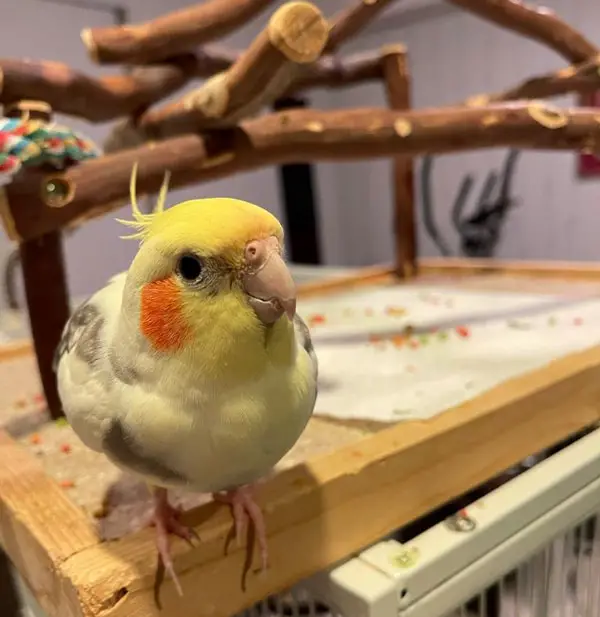
4. Dehydration
Water is crucial for most of the bird’s health activities, including digestion. Lack of water can lead to sudden death, especially if your cockatiel is sick or is on a dried food diet.
5. Physical Injuries
Like humans and other pets, some physical injuries can cause sudden death to your bird. If a bird flies into a window or a fan, it can sustain injuries that can later kill them instantly. Some bird toys can cause injuries, especially if they have cords or if made with unsafe materials.
Though sometimes it’s easy to tell what killed your pet bird, sometimes it’s not. To save yourself the trouble, assess the situation but don’t fail to involve your vet. As it is, the loss is painful, and you need to prevent similar occurrences in the future, but you must first identify the cause.
What Symptoms Could I Have Missed?
In most cases, the bird exhibits symptoms of diseases, but the owners are unable to decipher them. After some time, when the bird is fully affected and sick, it suddenly dies, which is when the owners realize it.
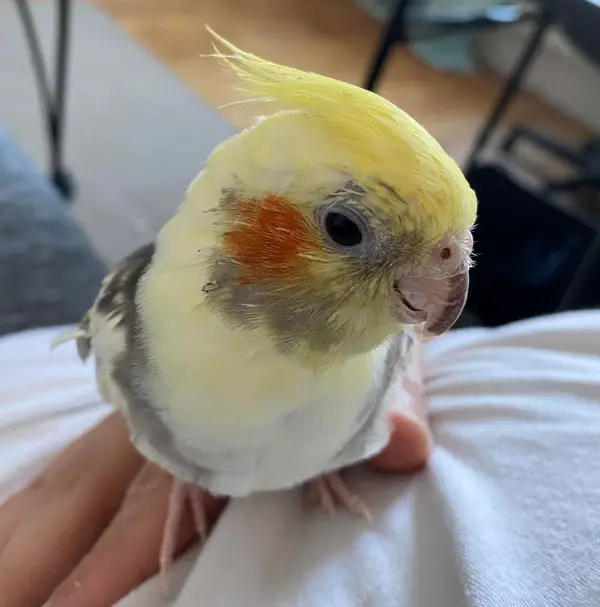
However, not all causes have symptoms, like in the case of PTFE, where the bird suddenly dies. In the table below are some possible symptoms you could have missed, leading to a cockatiel’s sudden death.
| Cause | Symptoms |
| Toxins like persin | Lethargy Collapsing Strained breathing |
| Avian Tuberculosis | Ruffled plumage Lameness Bottom-heavy appearance |
| Physical injuries | Weakness Bleeding Broken parts Seizure Breathing difficulties |
| Dehydration | Sunken eyes Wrinkled skin Dull eyes |
| Poor Diet | Weight Loss Weight Gain Poor quality feathers Flaky skin |
How Can I Tell the Actual Cause of Bird’s Death?
While learning the causes and symptoms is helpful, they do not actually tell the exact cause of your cockatiel’s death. In this case, a veterinarian can perform an avian necropsy, an autopsy performed on birds to determine the cause of death. The necropsy report can be expected within two weeks after submission, which should be a few days after the pet dies.
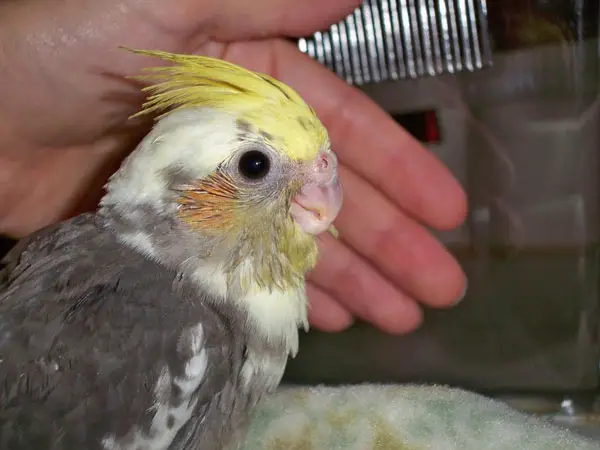
This process helps owners rule out some of the causes they thought could have caused the bird’s death. Necropsy also allows owners to avoid the cause of death and be more aware of the symptoms. The best part is that the owners can finally have peace knowing the cause of their pet’s sudden demise.
What Are the Precautions to Avoid Sudden Death on Your Cockatiel?
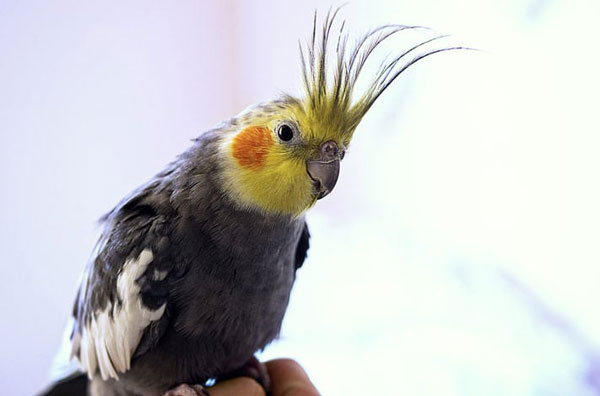
Owners can prevent some of the causes of sudden death in cockatiels. This is possible by taking some precautions based on some previous experiences known. The following are some of the measures you should take to avoid a sudden cockatiel’s death.
- Avoid an unbalanced diet, as it can promote weight gain or loss
- Keep the bird’s room free of glass to avoid fright injuries
- Keep the fan and other air conditioners covered to avoid physical injuries
- Get your pet regularly checked in case of an underlying problem
- Hydrate your pet regularly and if it refuses to drink, take it to a vet
- Avoid toxic plants or substances near the bird’s cage
- Check the safety of the bird’s toys before buying some to avoid injuries
Watching your cockatiels carefully will ensure you prevent premature deaths. As you observe their physical wellness, remember to pay special attention to their diet. These pet birds enjoy a broad range of foods, so you shouldn’t limit yourself. Ensure you incorporate fresh veggies, pellets, clean water, and the right fruits in your cockatiels’ diet.
Cleanliness is also paramount when handling cockatiels and other birds. Sometimes your cockatiel may die from diseases triggered by dirty water holders and feeders. Accumulation of dirt in humid conditions also becomes an ideal breeding site for bird mites, which can suck their blood, leading to anemia.
FAQ
The following are some frequently asked questions related to this topic. We’re certain you will find them useful.
Like most birds, cockatiels can be affected by a hyperacute disease leading to sudden death. Toxins can also make the bird suddenly die as they either lower blood pressure or create a chemical reaction in their bodies. However, a bird can also die from dehydration or a poor diet.
While most causes of cockatiel’s sudden death are related to diseases and toxins, some are caused by ingesting food. Some toxic foods include avocado, which contains a substance called persin that can kill a bird instantly. Other toxic foods include caffeine, chocolate, high-fat foods, and apple seeds, to name a few.
If your cockatiel is dead, you should call the local animal control department to learn of any possible outbreaks. With their clearance, you can remove it from its cage using latex gloves to minimize contamination. If your cockatiels were a couple, spend time with the grieving pet and take it to a vet for a check-up.
Outro
Any pet lover hopes that their pet has a complete life cycle and dies peacefully in old age. However, this dream is not often realized, as some will develop diseases or, in the worst case, suddenly die. A sudden death shocks the owners as they remain with many unanswered questions. If your cockatiel dies suddenly, it’s likely that toxins were involved, or they had underlying health issues.
The common symptoms of a possible life-threatening issue include lethargy, stress, visible physical injuries, and appetite loss. So don’t miss any symptoms that could indicate a life-threatening disease. Also, take various precautions to prevent death from accidents like sealing the ceiling fans or air conditioners and keeping any toxic substance away from the bird. Take your bird to the vet for regular checkups.
